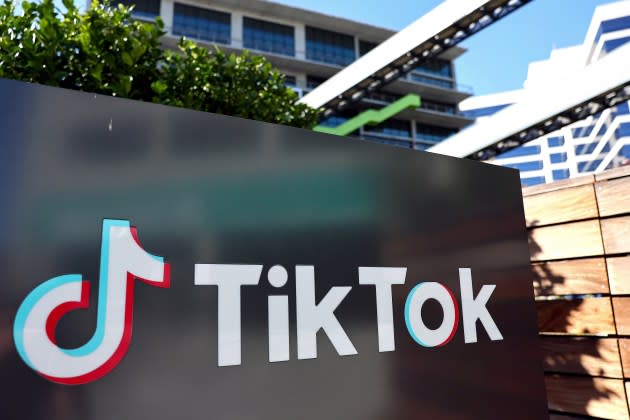Game On – TikTok Sues U.S. Government After New Law Forcing A Sale Or Ban Of Social Media Platform

Hugely popular social media platform TikTok and its Chinese parent ByteDance sued the U.S. government after a recent law passed by Congress and signed by President Biden just weeks ago that gives the company about nine months to sell TikTok or face a ban in U.S. app stores.
TikTok says the new law violates the U.S. Constitution and its First Amendment rights. The suit, or petition, filed with the U.S. Court of Appeals in Washington, D.C., was not unexpected as ByteDance has said it has no intention of selling TikTok and vowed to fight. TikTok insists that its U.S. user date is protected.
More from Deadline
Raven-Symoné Defends Wife After Backlash: "Stop With The Death Threats In Her DMs"
Universal Music Group Catalog To Return To TikTok As Companies Strike New Licensing Agreement
“There is no question: the Act will force a shutdown of TikTok by January 19, 2025,” the lawsuit states, “silencing the 170 million Americans who use the platform to communicate in ways that cannot be replicated elsewhere,” the suit says. “For the first time in history, Congress has enacted a law that subjects a single, named speech platform to a permanent, nationwide ban, and bars every American from participating in a unique online community with more than one billion people worldwide.”
It said the law, called the Protecting Americans From Foreign Adversary Controlled Applications Act, is unconstitutional. “Banning TikTok is so obviously unconstitutional, in fact, that even the Act’s sponsors recognized that reality, and therefore have tried mightily to depict the law not as a ban at all, but merely a regulation of TikTok’s ownership.”
It said the “‘qualified divestiture’ demanded by the Act to allow TikTok to continue operating in the United
States is simply not possible: not commercially, not technologically, not legally. And certainly not on the 270-day timeline required by the Act. Petitioners have repeatedly explained this to the U.S. government, and sponsors of the Act were aware that divestment is not possible.”
“There are good reasons why Congress has never before enacted a law like this. Consistent with the First Amendment’s guarantee of freedom of expression, the United States has long championed a free and open Internet — and the Supreme Court has repeatedly recognized that speech “conveyed over the Internet” fully qualifies for “the First Amendment’s protections.”’
Basically, it said the Act’s national security argument is a slippery slope. “If Congress can do this, it can circumvent the First Amendment by invoking national security and ordering the publisher of
any individual newspaper or website to sell to avoid being shut down. And for TikTok, any such divestiture would disconnect Americans from the rest of the global community on a platform devoted to shared content — an outcome fundamentally at odds with the Constitution’s
commitment to both free speech and individual liberty.”
The TikTok sale or ban included as part of a sweeping bipartisan $95 billion aid package to Ukraine, Israel and Taiwan. In a video post that day on X/Twitter, TikTok CEO Shou Chew said, “Rest assured, we are not going anywhere.”
“The facts and the Constitution are on side, and we expect to prevail again,” he said.
Donald Trump’s presidency also took a hard line with TikTok but through the government’s Committee On Foreign Investment in the United States (CFIUS). There was no official law passed and the administration faced several legal setbacks before appearing to drop the issue.
TikTok most recently slammed the law at its Newfronts presentation for advertisers last week. “I want you to know that we not backing down,” said Blake Chandlee, President, Global Business Solutions at ByteDance/TikTok.
Best of Deadline
'Wednesday' Season 2: Everything We Know About The Cast, Premiere Date & More
Hollywood & Media Deaths In 2024: Photo Gallery & Obituaries
2024 Premiere Dates For New & Returning Series On Broadcast, Cable & Streaming
Sign up for Deadline's Newsletter. For the latest news, follow us on Facebook, Twitter, and Instagram.

